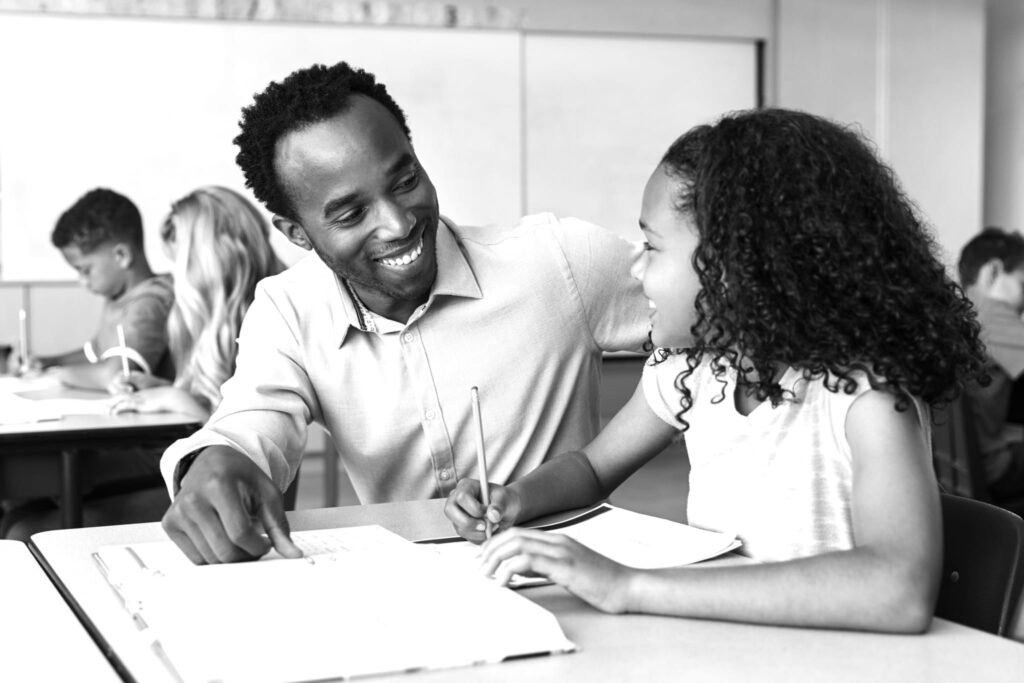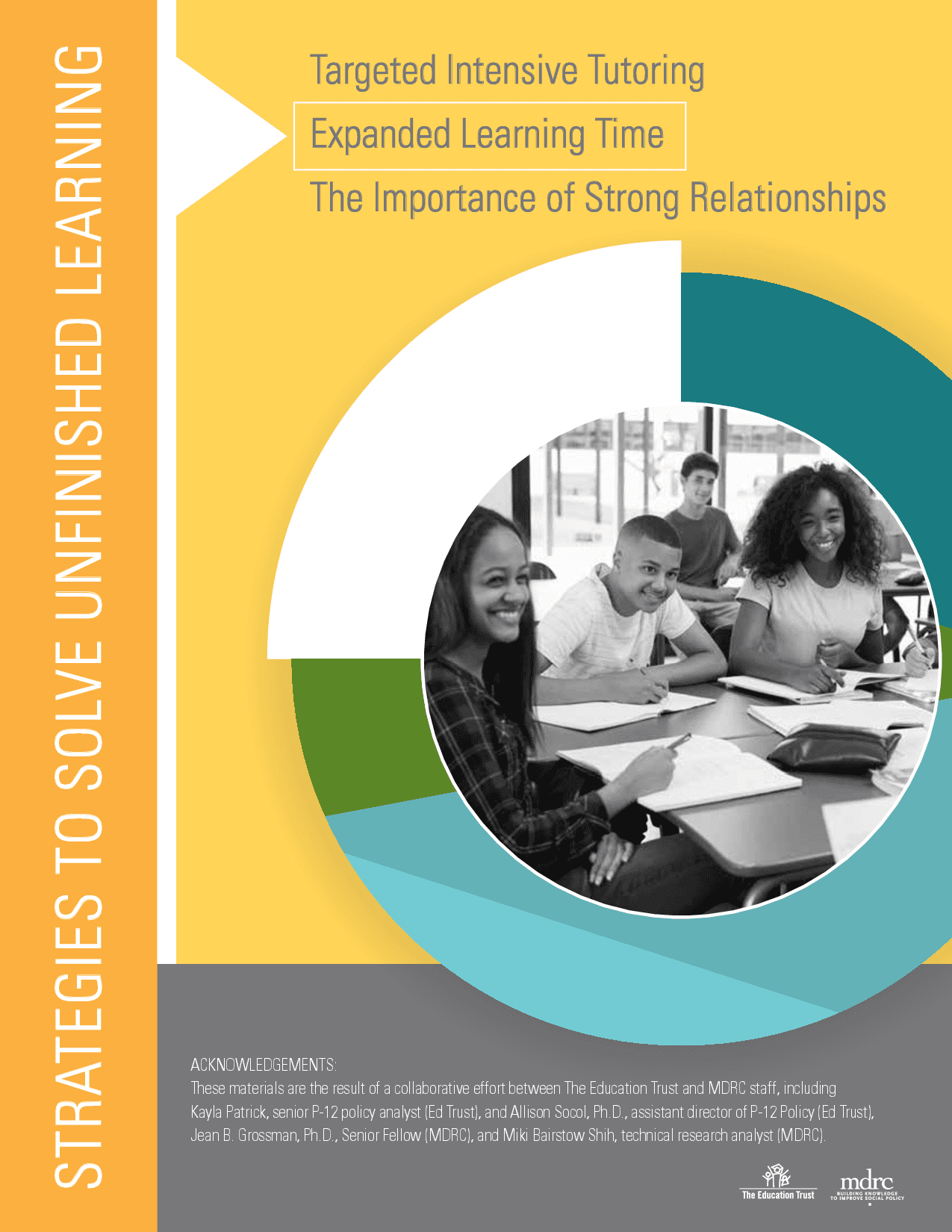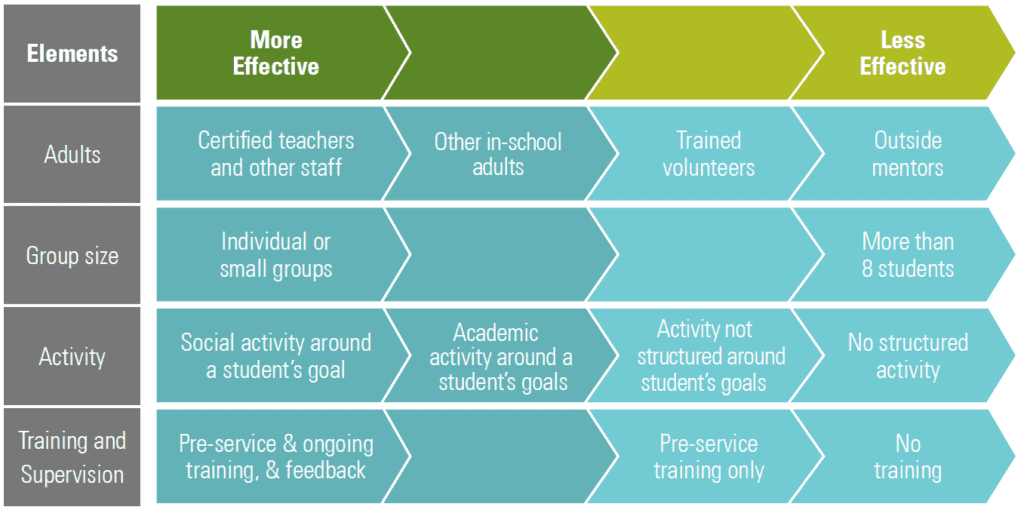The Importance of Strong Relationships Between Teachers & Students
Anxiety, stress, and in some cases, trauma are prevalent as we live through the COVID-19 pandemic. Students are facing…

Anxiety, stress, and in some cases, trauma are prevalent as we live through the COVID-19 pandemic. Students are facing food and housing insecurities, isolation caused by school and business closures, uncertainty due to parents losing jobs, and the fear of catching the coronavirus or grief of losing family members to it. Educators are facing their own personal stresses, in addition to being concerned about teaching academic content and about the well-being of their students, which can ultimately wear on their well-being.
But even with all of these stressors, teachers and students are trying to remain connected to schools and each other. Strong relationships with teachers and school staff can dramatically enhance students’ level of motivation and therefore promote learning. Students who have access to more strong relationships are more academically engaged, have stronger social skills, and experience more positive behavior. Unfortunately, too many students do not have this experience. A survey of 25,400 sixth to 12th graders in a large diverse district, found that less than a third of middle schoolers had a strong relationship with their teachers, and that number dropped to 16% by the time students reached 12th grade. Students from low-income backgrounds report even fewer strong relationships with their teachers.
When schools closed their doors in March 2020, these connections went away for many. But building trusting relationships will be critical to addressing the months of stress and missed classroom instruction, or unfinished learning, that has followed. Estimates show that as many as 3 million students are offline, hard to find, or have left school altogether as a result of school closures. In some places, data shows as many as 1 in 5 students did not participate in virtual learning in the spring. Building and maintaining strong “developmental relationships” that reconnect students with adults in school buildings will matter more now and in coming months than in previous school years. Without these trusting relationships and connections, educators cannot catch students up.
Strong relationships between adults and students must include: expressing care, challenging growth, providing support, sharing power, and expanding possibilities (see related chart for explanations). Importantly, these relationship-building actions must be done with an equity lens, one that supports positive racial, cultural, and ethnic identity development. The country’s attempt to reckon with 400 years of anti-blackness in response to recent acts of racial violence and injustice is highlighting the long-standing systemic inequities affecting students of color. And the pandemic is exacerbating them.
Creating strong relationships between students and those charged with educating them therefore will require adults to acknowledge the long-standing harms caused by racism in schools. Bias and discrimination, both implicit and explicit, can easily lead to harmful in-school practices that erase students’ cultural identities. Relationship building, however, must be done intentionally with the needs of students of color in mind and with a strength-based lens that recognizes and values the rich cultural and linguistic assets they bring to the classroom.
In this brief, we highlight the important practices of fostering strong relationships between students and adults, as well as how to build these relationships in ways that encourage and support students to engage in tasks that move them beyond their current understanding and skills.

District and school leaders considering emphasizing relationships as a strategy to help students catch up and stay connected with school will have to make intentional and important decisions about structuring time for teachers and staff, investing in activities, training on building developmental relationships, and about how to most effectively group students.
As school leaders consider what type of strategy could work best with their staff and students to build strong developmental relationship, they will have to make challenging decisions based on their specific circumstances or contexts. These decisions will come with tradeoffs. In this brief, we draw on research on strengthening student-teacher relationships, school-based mentoring, school-based after-school programming, and school-based case management to provide insight on those tradeoffs. The following chart shows how implementing different elements of building strong developmental relationships impacts the effectiveness of those relationships.
We looked at the research to help leaders navigate complicated decisions. The chart below shows how implementing various features of strong relationships impact effectiveness.

Who benefits most from strong relationships?
Students from all backgrounds and ages benefit from strong relationships.
Below are critical questions to ask, based on available research, as schools and districts are building plans to completed unfinished learning.
Strong relationships provide a foundation for student engagement, belonging, and, ultimately, learning. The more high-quality relationships students have with their teachers, the better their engagement in school.
The most important thing schools can do to foster these relationships is to have a culture that explicitly values adults nurturing relationships with students and providing teachers and school staff with the time, space, and occasions to interact repeatedly with individual students, especially those that seem less engaged.
All in-school adults should strive for strong relationships with students. When students have strong relationships with their teachers, in-class motivation increases the most. In these instances, students are motivated by teachers’ high expectations as well as their own.
Smaller groups are most effective for fostering relationships. One-on-one interactions allow for the greatest opportunity for individualized attention and support, but some adults and students benefit from a larger group setting.
Activities are most effective when they are based on students’ interests or goals.
Schools should provide all the adults in the school building with training on the elements of developmental relationships, time, and strategies to build developmental relationships. Schools should also provide individual feedback based on observations of adult interactions with students. This training will ensure that relationships are stronger and more effective in accelerating academic learning.
students of color.